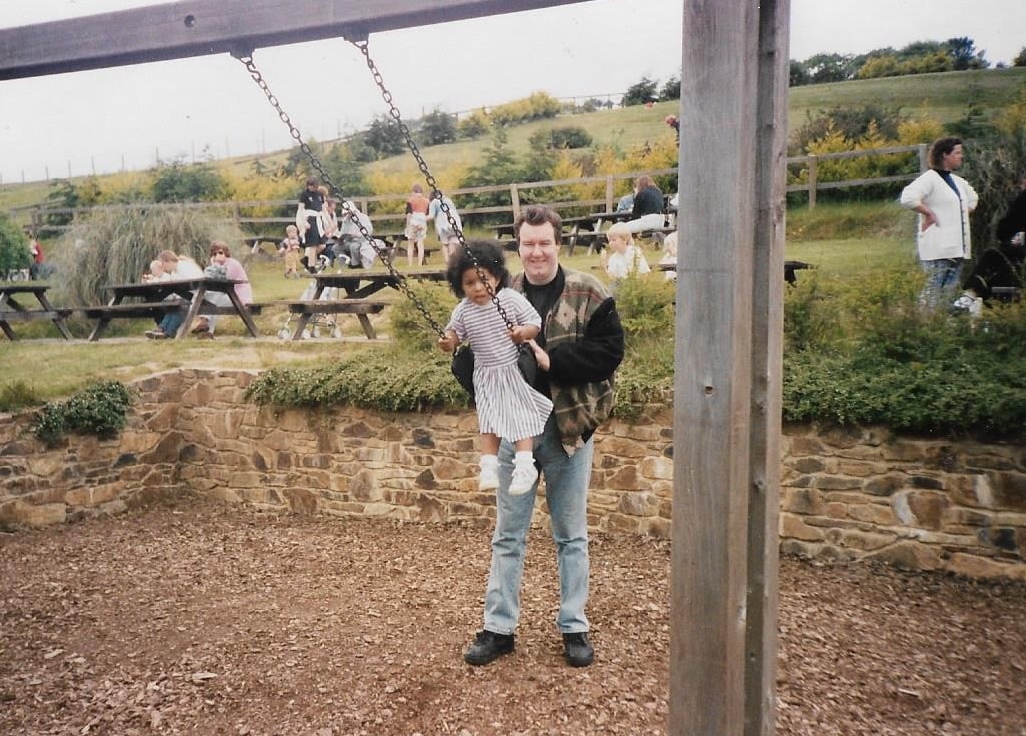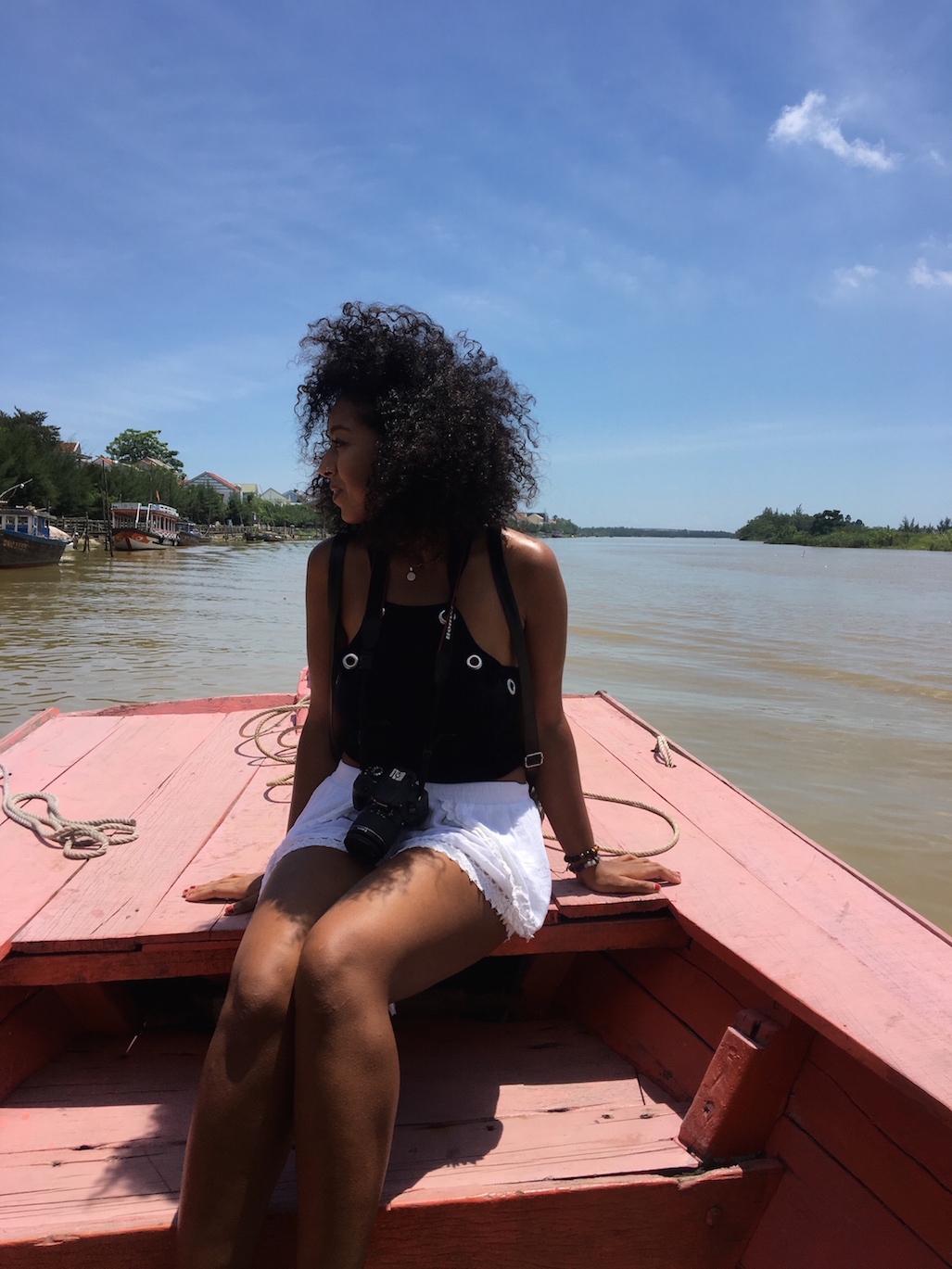My Parents Told Me I Was White—Until a DNA Test Uncovered the Truth
There are special feelings of solitude and disaffection reserved for those who grow up as racial outsiders within their own communities.
It's the acidic taste in the mouth after a friend makes a sweeping statement about immigrants; the lump that clogs my throat when I challenge my housemate on racist slurs; the gray cloud of confusion and anger that threatens to engulf me when my mother tells me she "doesn't see my color." It's tedium and loneliness and fury like you wouldn't believe. And as I've just uncovered the truth of my existence as the only black person in my white family, I'm only now starting to talk to those closest to me.
Here's the weird backstory: I grew up in the suburbs of London as a black-ish girl in a white world. My English-Irish parents never explained why I didn't look like them except to say—when pressed—that I was a brown-skinned miracle baby who had inherited her melanin and mixed-race features from ancestors rooted in the very distant past. My brother and I never discussed our differences; he is blue-eyed, pale, and kissed with freckles in the weakest glow of the sun. I'm brown-skinned, frizzy-haired, curvy, and physically unable to blush.
Read more: Women Tell Us What They Wish They Could Tell Their Mothers
I could see my non-white reflection staring back at me in the mirror as a kid, but I couldn't internalize the idea that I was actually black. Blackness came with a whole heap of cultural knowledge that I didn't have; of certain foods, hairstyles, history—and a pride my younger self just didn't feel. When my parents told me I was Anglo-Irish like them, I believed them. After all, I was a child.
As I got older and more cynical, people would routinely tear my story apart. Strangers told me I was obviously adopted, and kids I met on holiday asked if I switched at birth or lying. Your mom and the postman are hiding something from you, boys in clubs would jeer. By the time I turned 14, I started to doubt my parents' words. But it wasn't until my father's death in 2015 that I allowed myself to look for the answers I needed. As I grieved, I arranged a series of DNA tests and uncovered what I'd long suspected but refused to face: that I wasn't related to my dad. At least, not in the biological sense.
At first, my mom denied it and said there must have been a mix-up. I spent night after night screaming at her for answers when I returned home from work. Finally, she confessed to a one-night stand with a black man in west London.
In the past year, our relationship has gone to hell and back. Mom started out by refusing to accept any blame on the basis that she made the best decision she could at the time. "Your father and I gave you a great life," she maintains. And this is true. We weren't a rich family, but we had two holidays a year and my parents never missed a school play or parents' evening. They weren't perfect, except in their unconditional love for me and my brother. And my dad never once brought up the fact that we didn't look alike.
But every time others reminded me that I looked like a stranger in my own family, called me the n-word, and told me to "go home," I felt stripped of another scale of self. It was made worse by the fact that no-one in my life knew how to comfort me. At 18, I exploded at friends on holiday in Spain after a drunk in a bar made racist jokes—some of them at my expense—and nobody said a word. An unshakeable sense of alienation settled in me; I frazzled my scalp with relaxer, battled with my weight, and grew defensive at anyone who challenged my ethnicity.

The author with her father.
Now I'm asking my mom: How did you not see I was struggling? Why didn't you listen when I said a kid at school called me "paki"? I have memories of her walking out of the room; changing the subject; turning away. And that's the hardest part to forgive. She now says that she regrets those actions and that she didn't know I was suffering, but these apologies have taken months. I've had to give her an ultimatum: Talk about what's happened or lose me for good. The silence over my identity has been too deafening, and my anxieties bottled up for too many years.
Existing in the beige womb of whiteness—attending Catholic school in Surrey and mixing almost exclusively with other affluent white people—meant that I grew up shielded from most racial issues. I liked my cloak of whiteness as a kid, even if it was occasionally yanked from me with cutting jokes or knowing smiles. I only dated white boys. I didn't know any black role models. But now I'm exploring what it really means to move through the world as a mixed-race woman, and I face a new struggle with those closest to me.
"Don't you think Black Lives Matter are a bit OTT?" a friend asked once.
"Nobody uses the N-word anymore!" another said last week.
"Are you sure you're not exaggerating your experiences?" my mom asked as I forced her to listen to all the weird shyt I'd buried.
"You're still so white, though!" a friend's parent said.

The author now.
The DNA test has allowed me to start researching my own heritage and to speak more openly about identity issues and black politics. My blackness has been ignored for so long, because that's what was easiest. Now some people don't know how to process my urge to finally and unapologetically embrace it.
Most of the time, my own community treated me as if I was white. As a kid, I lost track of the number of times I'd overhear a borderline racist comment from someone I knew. (They would either disregard me completely or round the gag off with "I'm not talking about you... you're not black!") I don't know if they'll ever understand why cultural appropriation irks me, or why I worry about being judged according to stereotypes about black women while online dating. Family and friends can't ever check in with me on microaggressions or talk to me about colorism—they don't know these things exist. Most of them are loving but passive allies, and it saps the life from me to constantly explain and educate those around me. There's a gulf between us, and I'm not sure it will ever be bridged.
For More Stories Like This, Sign Up for Our Newsletter
Still, I'm OK with the fact that we're starting to have these conversations. My dad's parents and cousins have reassured me that I'll always be a part of the family, and old school friends have reconnected with me offering support. I've received apologies from exes and acquaintances who read about my story online and have sent heartfelt messages to make up for any insensitive comments they made as kids. (One teenage ex used to call me a "caramel queen" in bed. At the time, I couldn't work out why it made me uncomfortable.)
Finding out the truth about my ethnicity has been like unblocking an emotional dam. I was drowning in a sea of racial confusion before, and now I'm finding that the truth helps me talk to family and friends about who I really am.
It just might take a little longer than I expected.

 How sway???
How sway???




